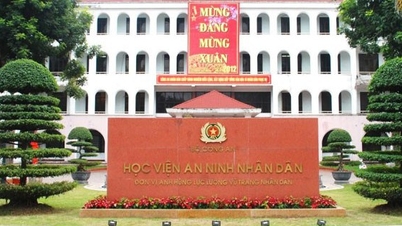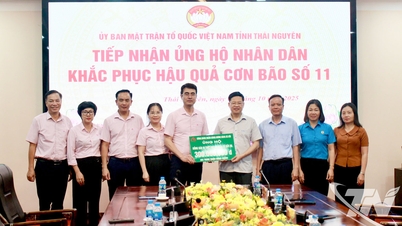MSc. Nguyen Huu Gioi - Chairman of the Vietnam Library Association said that on November 21, 2019, the National Assembly of the Socialist Republic of Vietnam passed the Library Law (effective from July 1, 2020). The Library Law is like a passport for Vietnamese Libraries to develop to a new level.
On June 3, 2020, the Government issued Decision No. 749/QD-TTg of the Prime Minister approving the "National Digital Transformation Program to 2025, with a vision to 2030" with 3 main pillars: Digital Government - Digital Economy - Digital Society; as a driving force to promote rapid, strong and sustainable national development.
Next, the Prime Minister issued Decision No. 206/QD-TTg, dated February 11, 2021, approving the "Digital transformation program for the library sector to 2025, with a vision to 2030".
Thus, in just a short period of time (3 years); our State has paid attention and promptly issued important legal documents, directing and orienting the development and modernization of libraries in our country (including implementing Digital Transformation in libraries), so that Vietnamese libraries can keep up with the general development trend of libraries in the world.

According to Master Nguyen Huu Gioi, digital transformation (CDS) in libraries in Vietnam is both the goal and the destination of the whole process. Digital transformation is not simply a "technical action" of converting information and documents from paper to electronic form using modern scanners and photocopiers; but importantly: information resources, digital collections, data in electronic libraries/digital libraries must be stored, preserved, and integrated to optimally/maximum serve information users/readers of the library in a new, more modern, and more convenient way than the traditional way.
Digital transformation in libraries in Vietnam aims to integrate data/metadata (Big Data) and information resources in libraries into a shared system with necessary and useful utilities.
Digital transformation in libraries in Vietnam is not only about converting information and documents from paper to electronic form, so that libraries can preserve and store information resources in the best way, but importantly, it must aim at its social effectiveness; that is, organizing, classifying, systematizing information resources, digital data in libraries, researching measures, applying advanced science and technology/technology advances in the library field, to organize optimal/maximum service for readers in the country and around the world. (priority is given to applying the 4.0 Industrial Revolution). If we do not do this job well, digital transformation of our libraries will not bring much meaning.
To practically and effectively implement digital transformation in library activities, contributing to improving reading culture for all classes of people, Master Nguyen Huu Gioi said that we need to pay attention to the following 3 main pillars: Big data, Technology and Human resources.
In which, Digital transformation and building Big data for libraries in Vietnam, serving the reading culture for the people is the number 1 important task today, when we are determined to build a digital society - digital economy and digital government (those are the 3 pillars of national digital transformation).
Because in modern society, in the current digital age; without big data in libraries (with many full-text databases, rich and diverse digital collections...), we will not be able to share information resources with libraries inside and outside the system and serve readers effectively. Resolution No. 57-NQ/TW dated December 22, 2024 of the Politburo on breakthroughs in science, technology, innovation (S&T) development and national digital transformation has affirmed the special role of S&T, S&T, S&T and digital transformation; identifying this as an important breakthrough, bringing the country to breakthrough development and prosperity.
The General Secretary clearly stated the viewpoint: Always thoroughly consider investment in science, technology, innovation and digital transformation as a long-term strategy. "Consider data as a new resource, the "air and light" of the new era, a new means of production; digital transformation is a tool to innovate production methods, business, and productive forces. Innovation is the "magic wand" to achieve sustainable prosperity, with scientists holding the central position.
Therefore, all science and technology intellectuals in our country need to have a more complete, deeper and more comprehensive understanding of Resolution 57 of the Politburo; so that they can be prepared, accompany and operate more effectively, and contribute more to the Fatherland of Vietnam in the coming time. In other words: Without Big Data and large databases, rich and diverse information resources, it is impossible to develop libraries and reading culture for all classes of people in the new revolutionary period: the era of national development.
Second, building information infrastructure, library equipment, serving digital transformation, connecting library networks, contributing to improving reading culture for people is an extremely important factor in accelerating the digital transformation process.
Currently, the facilities for libraries and information centers in the country have been gradually invested, quite modern compared to before. Library equipment such as: servers, computers, library software, scanners; internet connection/LAN, WAN are also invested more modernly. These items are important premises to create a library network nationwide (by block, each working cluster), improving the ability to serve readers. Because libraries in our country will be linked together through a shared network, regulated by a central operating system with a server containing millions of pages of documents, tens of thousands of books/or cloud computing applications like some countries in the world.
At the same time, research to apply integrated library management software, to apply it to all libraries in the system, ensuring reasonableness, efficiency and practicality. In addition, it is necessary to pay attention to security devices, network security, firewalls, stable and high-speed data transmission lines; ensure safety and no problems during operation. This is enough to see: if we do not invest in equipment to modernize libraries, do not have a strong enough IT infrastructure in libraries, it will be difficult for us to promote library work and improve reading culture for all classes of people in society in the digital age.

Digital library management
Third, human resources (including librarians and IT staff...) are the most important factors determining the success of digital transformation of libraries in our country, contributing to improving the reading culture of the people. It should be noted that library staff in the era of Industrial Revolution 4.0 must be cadres with strong political will, good ethics, and professional expertise, especially proficient in IT application and digital transformation, to operate and maintain the most effective information network with "Smart Libraries".
In particular, the future library human resources are very necessary for the modernization, construction of electronic libraries - digital libraries and digital transformation in many places, which are still lacking. Experts and good staff in this field are still few.
This will be the biggest challenge when libraries approach Industry 4.0, implementing digital transformation, operating interconnected networks, sharing information resources and unifying library networks in library systems.
Obviously, without sufficient quantity and quality of library staff and IT staff, it is difficult for us to manage and operate library activities effectively.
Source: https://bvhttdl.gov.vn/chuyen-doi-so-trong-thu-vien-khong-chi-la-chuyen-thong-tin-tu-lieu-tu-dang-giay-sang-dang-dien-tu-20251010093212136.htm


![[Photo] Unique Phu Gia horse hat weaving craft](https://vphoto.vietnam.vn/thumb/1200x675/vietnam/resource/IMAGE/2025/10/10/1760084018320_ndo_br_01-jpg.webp)



![[Photo] Ho Chi Minh City is brilliant with flags and flowers on the eve of the 1st Party Congress, term 2025-2030](https://vphoto.vietnam.vn/thumb/1200x675/vietnam/resource/IMAGE/2025/10/10/1760102923219_ndo_br_thiet-ke-chua-co-ten-43-png.webp)
![[Photo] Opening of the World Cultural Festival in Hanoi](https://vphoto.vietnam.vn/thumb/1200x675/vietnam/resource/IMAGE/2025/10/10/1760113426728_ndo_br_lehoi-khaimac-jpg.webp)

















































































Comment (0)